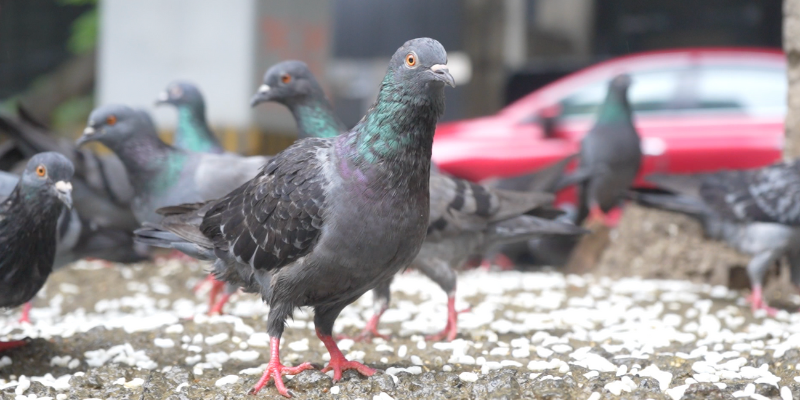Pigeons Are Mumbaikars, Too!
Pigeons are gentle, intelligent birds who deserve our respect and compassion. Feeding pigeons is more than a kind act—for many it’s a spiritual tradition. Yet misinformation about health risks abounds and currently, there is a ban on feeding pigeons in Mumbai.
Mumbai’s kabutarkhanas are century-old and provided countless citizens – many of them senior feeders – comfort and spiritual fulfilment from offering a handful of grain to these gentle birds each day. Moreover, pigeons who have been being fed at kabutarkhanas for generations will now starve to death without their known, reliable food source.

Do Pigeons Pose Public Health Risks?
Fears of disease from pigeons are widely overstated. People are far more likely to become ill from each other or from consuming eggs contaminated with salmonella than from exposure to pigeons.
A comprehensive review of over 60 years of research, published in the Journal of Infection, confirms disease transmission risk from pigeons to humans is very low—even for people who work closely with them. The University of Edinburgh also found pigeons are resistant to bird flu and thus cannot be held responsible for its spread.
Feeding Pigeons Is a Legal and Moral Duty
The Prevention of Cruelty to Animals Act, 1960, makes it illegal to cause animals unnecessary suffering and Article 51A(g) of the Constitution makes it a mandate of Indian citizens to have compassion for animals.
The Way Ahead
Feeding pigeons can be managed responsibly. Problems arise from poor sanitation and not feeding itself. With proper management of feeding areas, waste control, sanitation and education and awareness, peaceful and safe coexistence is possible.
Have Your Say!
PETA India urges:
• Kabutarkhanas to be declared pigeon-feeding zones with reasonable timings, approved pigeon-appropriate feed, and strict bans on littering, bread, and plastic waste.
• Regular sanitation drives with sweeps and wash downs of droppings. The droppings can even be channeled into composting systems to promote sustainability.
• Multilingual awareness campaigns correcting myths: pigeons are not a health risk, and feeding them is part of Mumbai’s culture of compassion.
• Consideration of the PiCAS (Pigeon Control Advisory Service) model, a globally recognised humane framework for managing pigeon populations.
What Can You Do?
Now is the time to make your voice heard. You can help ensure that a compassionate, sustainable solution for pigeon feeding is implemented by filling the form below.